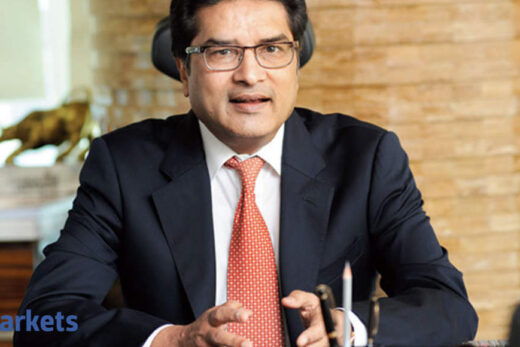“With these investments, Reliance has acquired the expertise and technology portfolio to start to build a fully integrated end-to-end renewables energy ecosystem through solar, batteries and hydrogen,” brokerage Bernstein said in a report. “Reliance will commercialise the acquired technologies and set up manufacturing plants in India.”
Reliance is expected to continue to invest in technology such as fuel cells and key materials for the clean energy sector.
“Based on our assumptions, we believe the new energy business could contribute almost 10 per cent of the company’s total EBITDA by FY’26 assuming all the factories are constructed and ramped up on the company’s timeline,” it said. “This will make Reliance a highly diversified conglomerate spanning E&P, refining, petrochemicals, clean energy, telecoms, retail and internet, although we suspect that the company will be split up given the inefficiency of such a corporate structure.”
Reliance still needs the technology for fuel cell development, which the company is expected to acquire or license from one of the industry leaders such as Plug Power, Ballard, or Ceres.
It may also need to invest in key suppliers for the sector such as manufacturers of cathode, separator and electrolyte for battery manufacturing and could also invest in MEA, catalysts and bipolar plates for fuel cell manufacturing.
Reliance is targeting solar manufacturing of 100 GW and green hydrogen costs of USD 1 per kg by 2030. It will spend USD 10 billion on the new energy business over the next 3 years towards achieving these targets.
“Based on capex for clean energy, we see a route to Reliance building a clean energy business, which could be worth USD 36 billion,” Bernstein said.
Reliance is building a green energy business to supply the equipment India will need for its green energy revolution.
Also, the firm has committed to being net carbon zero by 2035, which is earlier than any other energy company in the region.
“While Reliance has the balance sheet and relationships, it lacks the technology and manufacturing know-how which will be essential for success. While it is easy to dismiss their ability to pull it off, Reliance has shown they can move into new verticals successfully. We think the same is true here,” the report said.
Reliance at its shareholders’ meeting in June announced its plan to invest USD 10 billion in low carbon energy which marks another chapter in the transformation of the company.
Over the next 3 years, Reliance will spend Rs 60,000 crore to construct four ‘giga factories’ to make integrated solar PV modules, electrolyzers, fuel cells and batteries to store energy from the grid. The site of these plants will be located at the new 5,000 acres Green Energy Giga Complex in Jamnagar. An additional Rs 15,000 crore will be used for investments across the value chain, technology, and partnerships for the new energy business.
“From oil and gas to telecom, to retail and internet, it’s hard to think of another company which has reinvented itself as much as Reliance has done over the past decade. This is a bold move, however, and many will question what Reliance’s source of value is in these industries, other than their position as one of the most successful Indian conglomerates,” it said.
Reliance is acquiring REC Solar Holdings from China National Bluestar for USD 771 million.
REC is a well-established manufacturer of polysilicon, PV cells and modules with plants in Norway and Singapore. Using the technology of REC, Reliance will build a new integrated solar manufacturing plant in Jamnagar and expand capacity globally.
Ambani’s firm is investing USD 45 million in NexWafe to jointly develop and commercialise at scale monocrystalline green solar wafers, and is acquiring 40 per cent in leading solar EPC and O&M provider Sterling and Wilson Solar Limited (SWSL).
It has also signed a pact with Norway’s Stiesdal for technology development, and manufacturing of Stiesdal’s HydroGen Electrolyzers in India. Another USD 50 million has been invested in US-based Ambri to develop and commercialize Ambri’s liquid metal batteries for energy storage.
Reliance is also in discussion with Ambri to set up a large scale battery manufacturing facility in India.
“Overall, Reliance is building a fully integrated end-to-end renewable energy ecosystem for customers through solar, batteries and hydrogen. No other energy company is investing across the entire new energy value chain but if Reliance can pull this off then the value creation and earnings potential will be substantial,” Bernstein said.



